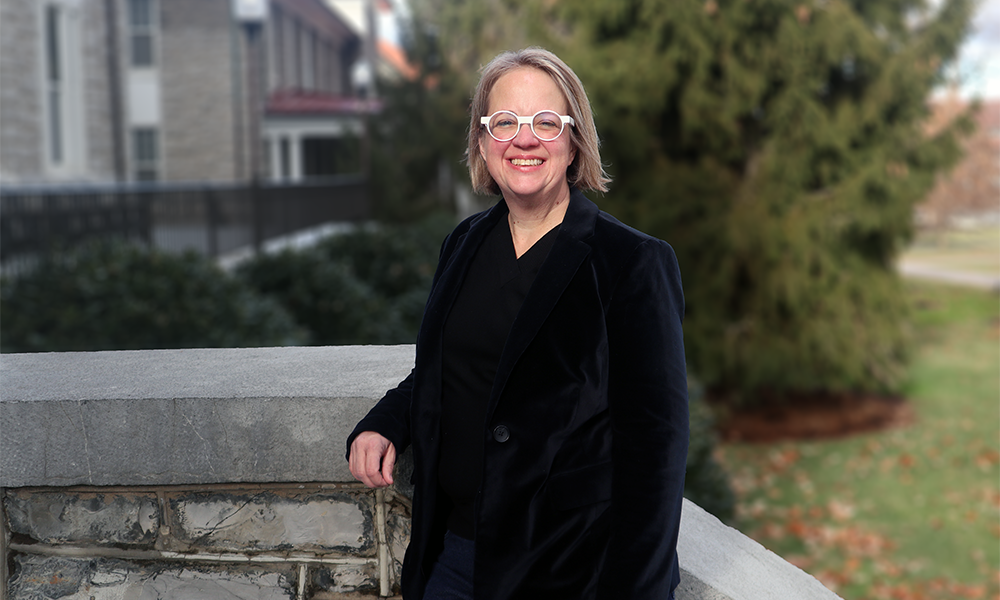NEH Supports Faculty Research on Aging and the Founding Fathers
News
SUMMARY: Rebecca Brannon, associate professor of history, was awarded an NEH fellowship for her project, “Old Age in the Wake of the American Revolution,” exploring the ways our Founding Fathers dealt with their fears of aging and loss of status as they aged. The fellowship will support Brannon as she writes a book on the subject.
Rebecca Brannon, associate professor of history, was awarded a fellowship from the National Endowment for the Humanities for her project, “Old Age in the Wake of the American Revolution.” NEH fellowships “are competitive awards granted to individual scholars pursuing projects that embody exceptional research, rigorous analysis, and clear writing.” For the 2023-24 fellowships, NEH funded just seven percent of the proposals it received.
Concerns about the mental acuity and poor health of aging politicians may sound like contemporary headlines, but Brannon shows that our nation’s first leaders faced the same questions about their aging minds and bodies. George Washington, according to her research, was “subject to increasingly public whispers and accusations that his memory loss from aging had accelerated into doddering senility.” John Adams and Thomas Jefferson corresponded about their fears of aging and loss of status as they aged.
Brannon’s interest in the topic stems from her previous scholarship on the American Revolution, and “measuring ‘how radical’ [it] was by its effects — what it did and did not change.” She wondered whether 18th century Americans were scared about aging, too. “Was it true there was a time in the hazy past when old people were simply respected for wisdom and lovingly cared for by their families without any hesitation? I know every other ‘Golden Age’ has been disproved. We humans are and always have been complicated. My work will show that getting old was complicated for the Founders, too.”
Brannon’s research explores the ways that American Revolutionary and Enlightenment ideals established a new emphasis on youth as a source of creativity and democratic virtue, as a demographic transition set off by the Revolution led to a drop in birth rates in the 18th century. The idealization of youth’s potential arose just as young people became scarcer.
While Brannon’s work focuses on the Founding Fathers’ experience with aging, she also draws on diverse archival sources like family letters, personal diaries and memoirs, charity home records, runaway ads and sermons to provide a broader account of non-elite experiences of growing older. This evidence, Brannon says, has uncovered both “a particular American Revolutionary ‘enlightened’ fear of advanced age” and a “deep continuity over time with the difficulties of facing an old age we cannot control—a fear people shared in the past and now.” Brannon’s fellowship began in September 2023 and runs through August 2024.
Reflecting on the value of the NEH fellowship, Brannon shares: “The fellowship gives me a wonderful period of time […] to marinate in the ideas and evidence and thereby (hopefully) produce a better, more readable book in the end. It is especially helpful as my work uses a lot of handwritten letters from several archives in the United States.” Sometimes evidence does not come together until late in the writing process. “Books take time,” she says. Brannon plans to submit a completed manuscript to a publisher at the end of her fellowship period. It’ll be worth the wait.
